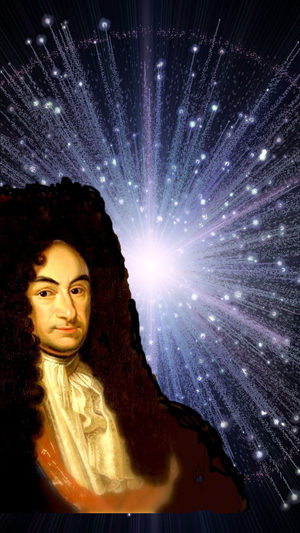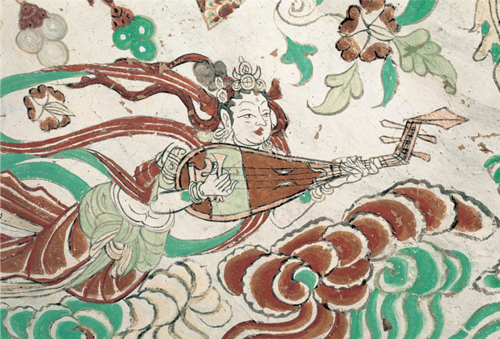
Your complimentary articles
You’ve read one of your four complimentary articles for this month.
You can read four articles free per month. To have complete access to the thousands of philosophy articles on this site, please
The Return of God?
The Best Possible World, But Not For Us
Mohsen Moghri gives a Godless but principled response to the problem of evil.
We are all familiar with the problem of evil for traditional theism: a perfectly benevolent God would evidently desire the greatest good, and want the best for every human being, yet we find ourselves in a world that seems nothing like that. Thousands of people lose their lives in earthquakes, or because someone in power decides to start a war. Thousands of others lose their faith because of seeing such incidents. It seems reasonable to think that a caring God would intervene at least when his soul-making plans turn out to be soul-breaking, and when his beloved the freedom for humanity is undermined. So what is the theist to say?
Of course, God may have reasons for allowing horrendous instances of evil, and the reasons may be far beyond our limited grasp. Or maybe he doesn’t care about us. Or what if God was not concerned about the good things for us, and instead cared about the overall value of reality? Well, I’m going to focus on a novel view that pictures the creative power in just this way: as a non-personal force that creates the best world, but not for us, since it cares about other values than simple human benefit. This view is called ‘axiarchism’. First I’ll introduce axiarchism and its metaphysical background. Then we’ll see how the problem of evil makes trouble for that view. Finally, I’ll develop a version of axiarchism that may succeed in avoiding the problem.

Art © Cecilia Mou 2024 Instagram @moucecilia
Axiarchism
Let’s first see what this alternative picture of the creator of the universe is. Axio means ‘value’ in Greek, and arche means ‘rule’; so, axiarchism is the view that instead of a personal God, value rules over everything. Alternatively put, this view pictures God as a non-personal creative force, or a principle that brings about everything worth existing. But what matters to that creative force are not individual instances of good things. Instead, the axiarchic force creates things that maximise overall value. Those things may have more human values like freedom and intelligence, or natural values like order and diversity. But, as long as the overall value stays at a maximum, the axiarchic force wouldn’t care if people died in earthquakes, since it wouldn’t sacrifice the greater value of natural order to save lives. It is difficult to accept that a personal God wouldn’t care; but with a non-personal creative principle it’s less difficult.
You’re probably wondering how a principle of goodness or value can create anything. To answer that we’ll briefly consider the metaphysical motivation behind axiarchism. Its main concern is not to get away from the problem of evil. The puzzle it deals with is how to explain why anything exists. Axiarchists argue that only a non-causal force or principle can ultimately explain why things exist, and they suggest the principle of maximizing value. Note however that talk of ‘creation’ by value is just metaphorical. Of course an abstract principle cannot create anything: if it did, it wouldn’t be abstract. Rather, a principle can non-causally explain why things exist the way they do. Unlike causal explanation, this sort of explanation involves a constitutive relation, in which something existing depends on its constituents. For example, a set of things being precisely that set relies on its members being what they are. Just in the same way the world being what it is can metaphysically depend on its constitutive feature. According to axiarchists, this feature is its value.
Axiarchism actually started with Plato, who argued that Goodness itself gives existence to the world. But this kind of non-causal explanation is not strange to theology, or even science. Scientists generally use the simplicity or mathematical elegance of a hypothesis as a guide to its truth, which is an idea about the constituent features of the hypothesis. And some theologians maintain that God exists because he is maximally good. Axiarchists argue that if God could exist because of his value, why not say that the world itself exists because of its value?
However, this is also where the problem of evil troubles axiarchism. Just like the benevolent God of monotheism, the axiarchic force is expected to create the best possible world. For sure, the measure of ‘bestness’ here is not only human lives: the world is supposed to have natural values as well. But even counting both natural and moral values, the world seems very far away from being the best it could be. The world’s imperfections are so obvious it’s difficult to claim that this world has the most overall value. For example, an alternative evolutionary process could have caused less pain and suffering. So axiarchism cannot ignore unnecessary suffering. It’s time to see how axiarchism responds to the problem of evil.
Ethical Axiarchism
Axiarchism responds to evil in two very different ways. In fact, we can say that there are two versions of axiarchism.
The first way to try to get around the problem of evil is to bite the bullet and say that our world is not the best, but is part of the best. Reality would be best if all of the on-balance good worlds – perhaps infinitely many of them – existed. That would be the best reality. Thus, this world does not contain the most value any one world could, but it’s still an overall good world – meaning that all its natural and moral values add up to a positive amount even when we factor in all the suffering – and is just one of many overall good worlds that exist. I call this view ‘ethical axiarchism’.
This plenitude of worlds may seem odd at first, but it's not strange to theism. Some theologians argue that instead of a single good universe, God would create every good universe.
However, this theistic good multiverse hypothesis and ethical axiarchism both face similar problems. First, there’s an ontological problem. The axiarchic principle is supposed to create all good worlds, and this is supposed to maximize goodness. But moral value seems to have no upper limit. More and more virtuous beings or universes may exist in an axiarchic multiverse without end. So it may not be possible to create the best world or the best reality.
But the epistemological problem is even more serious. We have access only to our own world. Considering that, we have no good reason to generalize any given feature of this world to others. For instance, suppose that our world is overall a good one. Of course, as I said, this world may be part of a bigger picture. But the bigger picture could be an overall bad reality.
What to take from this? That only special and improbable features of this world can say anything about its creation. Or to put it differently: only if the multiverse had the maximum goodness or value would this indicate a perfectly good creator. The objection to both traditional theism and axiarchism here however, is that instead of being the obvious best, our world is deficient. That’s the core of the problem of evil. So why should lots of these types of world add up to the best possible reality? So the existence of all good worlds cannot itself guarantee this bestness, nor is it justified to claim it. Therefore, this theodicy seems to fail.
Natural Axiarchism
It’s time to introduce the second version of axiarchism. This says that our world is the best not according to its human values, but in terms of its natural values of order, diversity, unity, and so on. One can say that here the creative principle has maximized not moral values but natural values, so I call this view ‘natural axiarchism’.
This view also seems odd. Yet let’s see a quote by Leibniz which clearly fits this picture. Gottfried Wilhelm Leibniz (1646-1716) was the figure who prominently promoted the ‘best of all possible worlds’ idea. But let’s see what he actually writes about the best possible world:
“God has chosen the best possible plan in producing the universe, a plan which combines the greatest variety together with the greatest order; with the greatest effect produced by the simplest means.”
(Principles of Nature and Grace, 1714)
Many instances like this in Leibniz’s writings make no mention of moral values about the best possible world. Instead he talks about natural values: the greatest variety; the greatest order; the simplest means. (There’s also evidence that he considers God as non-personal, but I’ll skip that.)

Leibniz at the Big Bang
Let’s first note how natural values are different from moral values. As I argued, the morally best world may be impossible because infinitely many good things must exist in such a world. Natural values avoid this problem because they’re in contrast to or in competition with each other: simpler orders include less diversity, and more complex worlds lose their simple order. Indeed, the simplest possible world would be an empty one, and the most diverse world – one that includes every possible being – would have no order. It is obvious that our world is somewhere in between: not too simple to lose diversity, and not too complex to lose order. Perhaps then our world has the simplest diversity-increasing order, or as we could say, the optimal combination of natural values. We might also argue that the fundamental laws of nature optimize those natural values. That is to say, perhaps our universe is fine-tuned, not for human existence, but for increasing the diversity of kinds of beings. Natural selection, and the evolutionary process generally, is arguably the optimal way to create diverse life forms. Gravity and the laws of relativity are arguably the optimal way to create many planets and stars. The laws of quantum mechanics are arguably the optimal way to create different universes. So I think any evidence for fine-tuning is evidence for the world’s optimality, rather than evidence for a God.
Focusing on natural value helps natural axiarchism avoid the epistemological problem that plagues ethical axiarchism, since we are not generalizing a feature of this world to others. Rather, the highly improbable fine-tuned nature of the fundamental physical constants of our universe shows only that the creative force maximizes natural values. The horrendous evil in the world shows another thing: that the creative force does not care about human values. Instead, destruction, pain, and death are part of the optimal order of nature; and human beings are just cosmic accidents in the process of increasing diversity.
What about our moral intuitions, then? Does this mean moral values are just subjective, human-made ideas? Not necessarily. Natural axiarchism only says that our existence and our well-being are immaterial to the creative principle. It doesn’t mean we shouldn’t care about that principle. Rather, we intuitively do find value in natural features such as order, simplicity, and diversity, and our lives are themselves a small link in the chain of increasing diversity. In this and other ways, our lives partake in natural values. So, although the creative principle doesn’t care about us, we ought to care about it.
To make this point clearer let’s bring in an analogy from theism. According to traditional monotheism, God is definitively good, and our existence and actions add nothing to his divine goodness. On the other hand, human lives can be good only in relation to God. Being good for humans means resembling God, or acting in accordance with his purposes. In just the same way, on natural axiarchism, the creative natural values can be a model for human lives and a channel for human goodness: we can follow them in our lives in order to live a good life. Of course, with changing the measure of goodness comes a different form of morality. Just so, instead of being human-targeted as many theistic ethical systems are, natural axiarchism chooses the way of nature as its ideal.
This view resonates most of all with the Chinese philosophical religion of Daoism. ‘The Dao’ means ‘the way of nature’, and in Daoism human values are totally grounded in natural forces and processes. Daoism advocates following a simple orderly life, living in unity with society, and respecting and preserving the diversity of life forms. Living in harmony with nature is Daoism’s fundamental principle. In this way, natural axiarchism can be seen as a metaphysical grounding for Daoist morality.
Perhaps the most challenging task for natural axiarchism is to show that its less familiar kind of morality is worth following. There are two ways to show that: the first is to make a comparison with other ethical traditions; and the second is to rely on our moral intuitions. Yet even the traditions that consider God as the source of all goodness face the same problem: Why should one follow God and his commands? Because he’s good, right? But why suppose that God’s goodness is the same as ours? If God’s nature is fundamentally different from human nature, as theists suppose, there is reason to consider his goodness to be different, too. It seems then that theists rely on their intuitions that God’s way and purposes are good for us.
The same thing happens in daoism. For daoists, the way of nature determines whether a human action or behaviour is good. But they also have no reason other than moral intuition to see the way of nature as good.
We also have an intuition that those natural features highlighted by natural axiarchism are valuable. We consider simplicity, order, and diversity as valuable features everywhere: in a piece of music or art, in a community or society, and above all, in the natural world. So why not consider those values as our model for life? After all, we’ve been created through the operation of these values.
What’s to take from all this about evil and suffering? According to natural axiarchism, natural pain and suffering are not intrinsically evil. The suffering caused by evolution or natural disasters is instead part of the way nature proceeds; it’s part of the laws of nature. But this doesn’t turn all morality into arbitrary preferences. This is a major difference between axiarchism and standard atheistic perspectives. Atheists typically cannot offer any ground for morality beyond human pleasure and pain. For atheists, the ultimate evil is human pain. So, if all humans could be tied to equipment that induces life-long pleasure, atheists should support that. However, natural axiarchism avoids this human-centred result. The way of nature, its simple order and unified diversity, is objectively valuable. This means that a human act brings evil if it prevents or blocks people or other beings from attaining to cosmic harmony. And human pain and suffering do mostly prevent cosmic harmony; that’s why they’re often regarded as evil. However, not every pain is bad. Even in our daily lives, we find many instances of pain and suffering justifiable – such as the pain of a growing body, or the suffering of an imprisoned criminal. According to the holistic picture, and using the measure of cosmic harmony, many instances of pain and suffering are good for us.

Pipa player mural from Tang dynasty
Conclusion
Evil and suffering seem problematic when we consider humans as metaphysically special. From a personal creator who wants the best for all humans, we expect a better world than this one – one with no unnecessary suffering. Yet the main problem here is not the personal character of God, but our assumption of human specialness. The same specialness also causes problems for atheists when human pleasure and pain are the measures of good and bad, since our intuition tell us that morality must be beyond mere human likes and dislikes.
Natural axiarchism offers a way to avoid human-centred morality. The axiarchic creative principle seems nothing like human beings, and does not even care about their lives and values. And from the cosmic perspective, everything is the best. From our limited perspective, however, things can be good or evil. Specifically, human acts are good when getting closer to the creative principle, but evil when far from it.
I’d like to end with a quote, not from an axiarchist nor a naturalist, but from a contemporary theologian who also renounces human-centred theology:
“God is the ground of being, the power and creativity of the structured flows of nature, the ontological spring of matter and value. This God is not good in a humanly recognizable way, nor personal in character… Suffering in nature is neither evil nor a by-product of good. It is part of the wellspring of divine creativity in nature… this is the truth that sears our souls, that awakens us again and again from our anthropomorphic theological slumbering, and that drives us to love that which destroys even as it creates.”
(‘Behind, between, and beyond anthropomorphic models of ultimate reality’, W. J. Wildman, Philosophia, 35(3-4), 2007).
© Mohsen Moghri 2024
Mohsen Moghri is a MSCA Postdoctoral Research Fellow at the Centre for Philosophy of Religion, University of Birmingham.
• This work was supported by the UKRI-Horizon Europe Guarantee [grant reference: EP/X022633/1].









